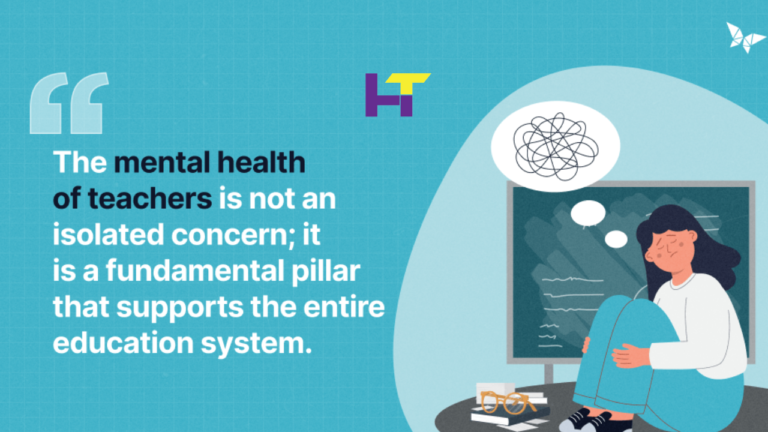Comprehensive Guide to Anxiety Therapy: Finding Relief and Support

Anxiety disorders are prevalent on a global scale, affecting millions of individuals across diverse demographics. They encompass a spectrum of conditions, including generalized anxiety disorder (GAD), social anxiety disorder, panic disorder, and specific phobias. These disorders extend beyond occasional worry to significantly disrupt daily life, influencing performance at work, straining relationships, and diminishing overall well-being. While it’s normal to experience occasional anxiety in response to stressors, persistent and overwhelming anxiety that interferes with daily functioning often necessitates professional intervention. This is where anxiety therapists emerge as pivotal figures in mental health care. Specializing in understanding the nuances of anxiety disorders, anxiety therapists offer targeted interventions and support to help individuals regain control over their lives, manage their symptoms effectively, and ultimately improve their quality of life.
Understanding Anxiety Therapy
Anxiety therapy, also known as anxiety counseling or treatment, refers to specialized psychological interventions aimed at helping individuals manage and overcome anxiety disorders. Anxiety therapists are trained professionals specializing in assessing, diagnosing, and treating various anxiety-related conditions. They utilize evidence-based therapies, personalized treatment plans, and compassionate support to empower clients in their journey toward improved mental health.
Why Seek Help from an Anxiety Therapist?
Anxiety disorders manifest in diverse symptoms, such as excessive worry, physical discomfort, avoidance behaviors, panic attacks, and specific fears. Seeking help from an anxiety therapist is essential for several reasons:
- Specialized Expertise: Anxiety therapists undergo rigorous training and education to specialize in anxiety disorders. They possess extensive knowledge of psychological theories, therapeutic techniques, and effective interventions tailored to individual client needs.
- Personalized Treatment: Anxiety therapists collaborate with clients to develop customized treatment plans based on comprehensive assessments and diagnostic evaluations. These plans often incorporate cognitive behavioral therapy (CBT), exposure therapy, mindfulness techniques, and medication management designed to address specific symptoms and therapeutic goals.
- Practical Therapeutic Approaches: Evidence-based therapies like CBT have proven effective in reducing anxiety symptoms by challenging negative thought patterns and behaviors. These therapies empower clients to develop coping strategies and regain control over their lives.
- Compassionate Support: Beyond clinical expertise, anxiety therapists provide empathetic support and create a safe space for clients to explore their thoughts, emotions, and fears without judgment. They foster a therapeutic alliance built on trust and collaboration.
- Holistic Treatment: Anxiety therapists adopt a holistic approach to treatment, addressing underlying factors contributing to anxiety and collaborating with other healthcare professionals as needed to ensure comprehensive care.
Types of Anxiety Therapy
Anxiety therapy encompasses various therapeutic approaches tailored to meet individual needs:
1. Cognitive Behavioral Therapy (CBT)
CBT focuses on identifying and modifying negative thought patterns and behaviors contributing to anxiety. It equips clients with practical skills to challenge irrational beliefs, manage anxiety triggers, and improve coping mechanisms.
2. Exposure Therapy
Exposure therapy involves gradual and systematic exposure to anxiety-provoking stimuli in a controlled environment. This therapeutic approach helps clients desensitize to fears, reduce avoidance behaviors, and build confidence in managing anxiety-inducing situations.
3. Mindfulness-Based Interventions
Mindfulness practices such as meditation, acceptance, and commitment therapy (ACT) promote present-moment awareness and nonjudgmental acceptance of thoughts and emotions. These techniques enhance emotional regulation, reduce stress reactivity, and improve overall well-being.
4. Psychodynamic Therapy
Psychodynamic therapy explores unconscious conflicts and past experiences contributing to anxiety symptoms. By gaining insight into underlying dynamics, clients develop self-awareness and explore more profound aspects of their anxiety.
5. Medication Management
In collaboration with psychiatrists or primary care physicians, anxiety therapists may recommend medications such as SSRIs or benzodiazepines to alleviate severe symptoms and enhance the effectiveness of psychotherapy.
What to Expect in Anxiety Therapy Sessions
Anxiety therapy sessions are structured to provide a supportive environment for clients to explore concerns, set goals, and work toward positive change. Key components include:
- Initial Assessment: Comprehensive evaluation of medical history, symptoms, and therapy goals.
- Treatment Planning: Collaborative development of a personalized treatment plan based on assessment findings.
- Therapeutic Interventions: Utilization of evidence-based techniques tailored to individual needs.
- Progress Monitoring: Regular evaluation of treatment progress and adjustments as needed.
- Homework and Skill Building: Assignments to reinforce therapeutic concepts and practice coping skills between sessions.
Benefits of Anxiety Therapy
Engaging in anxiety therapy offers numerous benefits:
- Symptom Reduction: Alleviation of anxiety symptoms such as worry, panic attacks, and avoidance behaviors.
- Improved Coping Skills: Acquisition of effective coping strategies and stress management techniques.
- Enhanced Relationships: Strengthen interpersonal skills and communication, leading to healthier relationships.
- Increased Self-Awareness: Greater understanding of personal triggers and behaviors contributing to anxiety.
- Improved Quality of Life: Overall enhanced emotional well-being, self-confidence, and ability to pursue personal goals.
How to Find an Anxiety Therapist
Choosing the right anxiety therapist is crucial for successful treatment:
- Research: Seek referrals from healthcare providers, friends, or online directories specializing in anxiety therapy.
- Credentials: Verify the therapist’s credentials, licensure, and experience in treating anxiety disorders.
- Therapeutic Approach: Assess the therapist’s approach and expertise in evidence-based therapies for anxiety.
- Compatibility: Schedule an initial consultation to determine comfort level, communication style, and therapeutic fit.
- Logistics: Consider practical factors such as location, availability, fees, and insurance coverage.
Overcoming Barriers to Seeking Help
Address common barriers to seeking anxiety therapy:
- Stigma: Educate yourself and others about mental health to reduce stigma and encourage open discussion.
- Expectations: Set realistic expectations for therapy outcomes and acknowledge that progress takes time and effort.
- Accessibility: Explore alternative options such as teletherapy for convenient access to therapy services.
Conclusion
In conclusion, anxiety therapy provides essential support and effective interventions for individuals struggling with anxiety disorders. By partnering with a qualified anxiety therapist, clients gain access to specialized care, personalized treatment plans, and compassionate support to navigate their journey toward better mental health. If you or someone you know is experiencing anxiety symptoms, seeking help from an anxiety therapist can lead to significant improvements in coping skills, emotional well-being, and overall quality of life. Embrace the opportunity to reclaim control over anxiety and pursue a fulfilling life with professional support and guidance. Remember, you are not alone, and help is available to support you on your path to recovery.
Read More: Benefits of Online Tarot Card Reading Services for Future Predictions.






